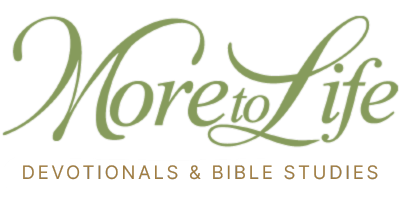“And those twelve stones, which they took out of Jordan, did Joshua pitch in Gilgal.
And he spake unto the children of Israel, saying, When your children shall ask their fathers in time to come, saying, What mean these stones? Then ye shall let your children know, saying, Israel came over this Jordan on dry land.” (Joshua 4:20–22, KJV.)
Joshua’s act of setting up twelve stones was more than a historical marker—it was a spiritual declaration. These stones told the story of God’s power and provision. They were a lasting reminder that Israel crossed the Jordan on dry ground only because of God’s mighty hand. They were called to build a legacy: a legacy of faith, truth, and inheritance that outlived their lifetime.
1. The Legacy of Faith
Faith is more than belief; it is the foundation of spiritual legacy. Scripture mentions faith 336 times, and one of the clearest examples is Abraham. In Genesis 15:5, God promised him countless descendants:
“Look now toward heaven, and tell the stars, if thou be able to number them:… so shall thy seed be.”
At that time, Abraham and Sarah were childless. Sarah was barren. Yet Abraham believed. Later, in Genesis 22, God tested his faith again—commanding him to offer Isaac, the promised son, as a sacrifice. And still, Abraham obeyed. His faith was not shaken by circumstance. As Romans 4:20 states:
“He staggered not at the promise of God through unbelief; but was strong in faith, giving glory to God.”
It is easy to say we have faith when life is smooth. But what about when everything falls apart? When your plans unravel, when doors close, when prayers seem unanswered—will we stagger, or will we stand?
The legacy of faith is not only in blessings, but also in how we endure burdens. It is passed down in quiet confidence, waiting for answers, in whispered prayers through tears, and in the choice to trust even when the way is unclear. Faith is not just a confession—it is an inheritance. What will your children and spiritual daughters inherit from you: doubt and fear, or unshakable trust in God’s promises?
We live in uncertain times. Many have faced losses, financial hardships, or emotional valleys. Yet faith does not mean the absence of trouble—it means the presence of trust. God already knew the storms would come; the question is whether we will trust Him in the middle of them.
Abraham’s legacy of faith was forged through testing. Ours will be too. The process may feel confusing, even painful—but if we trust Him, it will produce a faith worth passing down to future generations.
2. the Legacy of Truth
“The legacy you leave is the life you lead.”
Truth is not just something we believe—it is something we live. In a world where opinions are promoted as facts and preferences often replace biblical standards, Apostolic women must anchor themselves in truth. 2 Timothy 2:15 instructs:
“Study to shew thyself approved unto God, a workman that needeth not to be ashamed, rightly dividing the word of truth.”
Truth is not subjective—it is revealed in God’s Word.
We are called to rightly divide that truth and live it out in word and deed. Apostolic truth—oneness, holiness, the infilling of the Holy Ghost—is more than theology; it is a lifestyle. It governs how we dress, how we speak, how we treat others, and how we worship.
Picture a young tree standing between two tall, mature trees. That small tree depends on the strength and guidance of the trees on either side. Their roots stabilize it; their height shields it. Without their support, it is vulnerable to the storm.
Your children, youth group, and Sunday School class are like the young tree—they are watching, listening, and learning from you. When you open your Bible, they want to read too. When you pray, they begin to pray. When you show faithfulness, they learn consistency. And when you live the truth, they recognize that truth is not just taught—it is caught. As 1 Peter 2:21 reminds us:
“For even hereunto were ye called: because Christ also suffered for us, leaving us an example, that ye should follow his steps.”
We are not called to perfection, but we are called to be examples. Jesus is the model. His life was one of integrity, sacrifice, compassion, and obedience. That is the kind of legacy we must leave behind—not only professed, but lived.
3. The Legacy of Inheritance
Today, inheritance is often reduced to material possessions—houses, bank accounts, cars, and savings. While those may bring temporary security, they do not carry eternal value. Proverbs 13:22 declares:
“A good man leaveth an inheritance to his children’s children: and the wealth of the sinner is laid up for the just.”
A true inheritance is not measured by net worth, but by spiritual worth. You may not leave behind a fortune, but you can leave faith, prayer, character, and love for God’s Word. These riches that cannot be lost in recession, stolen by thieves, or corroded by time. As Matthew 6:19–21 warns:
“Lay not up for yourselves treasures upon earth… But lay up for yourselves treasures in heaven… For where your treasure is, there will your heart be also.”
Where is your treasure? What consumes your investment: career, possessions, retirement plans? Or are you investing in souls, service, and eternity?
It is often said, “You can’t take it with you.” And it’s true. Earthly wealth stays behind when we die. Reputation may remain in memory, but what about in eternity? Were we rich toward God? Did we leave a legacy that echoes beyond this life?
Every prayer, every act of service, every soul reached—these are spiritual deposits stored in Heaven. As Colossians 3:23–24 affirms:
“And whatsoever ye do, do it heartily, as to the Lord… Knowing that of the Lord ye shall receive the reward of the inheritance: for ye serve the Lord Christ.”
The Heavenly Inheritance
Even in uncertain times, God assures us of a greater reward:
“Blessed be the God and Father of our Lord Jesus Christ… to an inheritance incorruptible and undefiled and that does not fade away, reserved in heaven for you” (1 Peter 1:3–4, NKJV).
That is the inheritance worth building: one that does not decay, one preserved by God Himself. Whether you are a mother, a single woman, a student, or a seasoned elder—your legacy matters. Your worship matters. Your obedience matters.
We are not here simply to survive life; we are here to live for Christ and to leave a legacy that will outlive us.
Your legacy isn’t determined by the volume of your voice, but by the depth of your roots.
Today’s devotional was written by Wylleen May Dimatulac.


